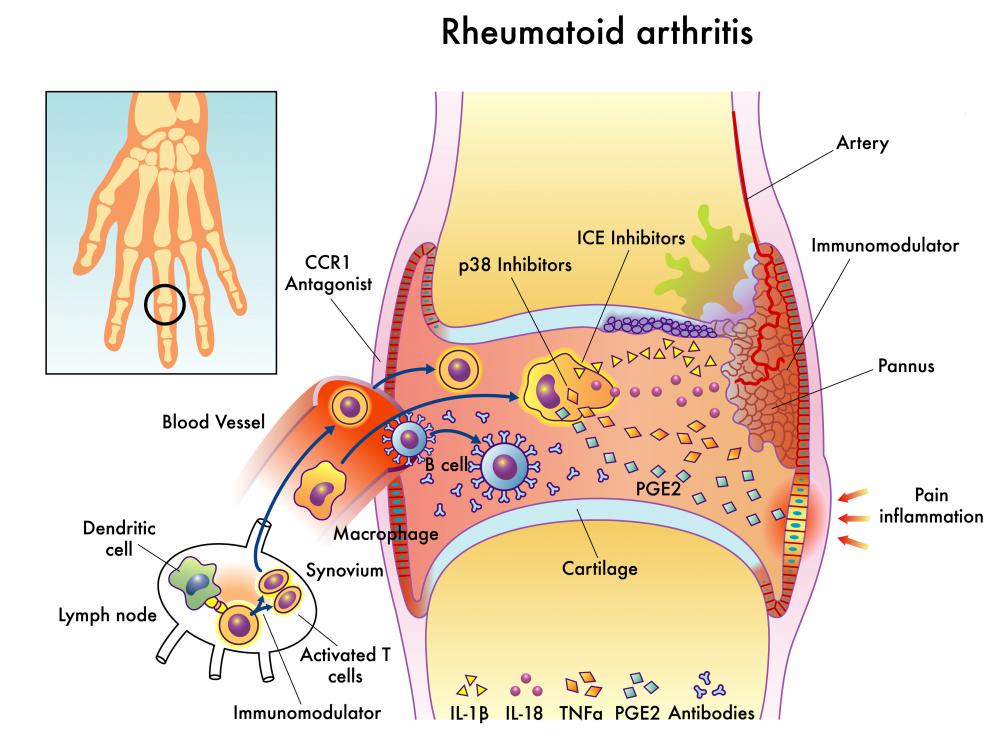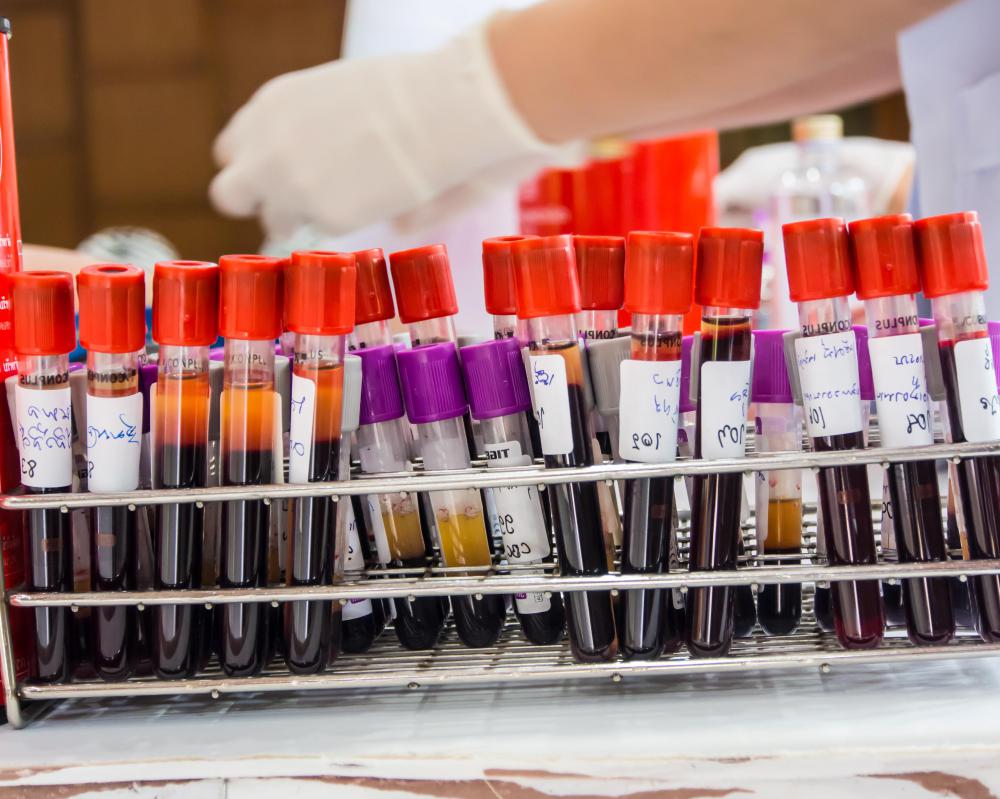At WiseGEEK, we're committed to delivering accurate, trustworthy information. Our expert-authored content is rigorously fact-checked and sourced from credible authorities. Discover how we uphold the highest standards in providing you with reliable knowledge.
What is an Acute-Phase Protein?
An acute-phase protein refers to a protein that undergoes a rapid change in serum concentration during a response to a specific event or reaction in the body. These proteins are often produced by liver cells or immune cells, and usually are part of an inflammatory response. This reaction may occur in response to trauma, a pathogen, cancer, or a number of other abnormal events. The serum level of an acute-phase protein will change within approximately an hour and a half following the event within the body.
Acute-phase proteins may be either induced or repressed in response to the event. A protein that is induced is called a positive acute-phase protein, whereas a protein that is repressed is called a negative acute-phase protein. The induction and repression of these proteins within the body generates a profile that can be measured by blood serum tests.

An example of a positive acute-phase protein is C-reactive protein. The concentration of this factor may be increased in the tissues in response to a microbial invader in order to take part in a reaction that will effectively destroy the microbe. An example of a negative acute-phase protein is the albumin protein, which under some circumstances may inhibit a necessary inflammatory response at its normal blood concentration.

The acute-phase response is a carefully regulated process in the body under normal conditions, and the coordinated expression of these proteins is crucial for proper health. For example, when trauma occurs to a certain area, factors will be released that both induce and inhibit cell death. A factor that causes cell death and clears cell debris will be required in the initial phase of the event because it is necessary to remove the area of tissue that has been damaged. It is important, however, to balance this with the release of factors that shut off the cell clearing components to avoid destruction of healthy, normal surrounding tissue.
When the acute-phase protein response is not properly controlled, the results can be detrimental. An example of this is a chronic inflammatory condition like rheumatoid arthritis. In this case, the release of these factors into areas of the body where a foreign pathogen is perceived, such as the joints, can lead to chronic pain and eventual destruction of the joint tissue.
Another example of a deregulated acute-phase protein response is in the case of certain cancers. In the early phase of cancer, tumor necrosis factor (TNF) is released and destroys cancerous cells in the body. As the cancer progresses, however, there is evidence that TNF may sometimes set off a series of complex reactions that help the tumor cells grow and spread. The reason for this is not well understood. In this case, what began as a response to help the body becomes detrimental to the body.
AS FEATURED ON:
AS FEATURED ON:












Discuss this Article
Post your comments